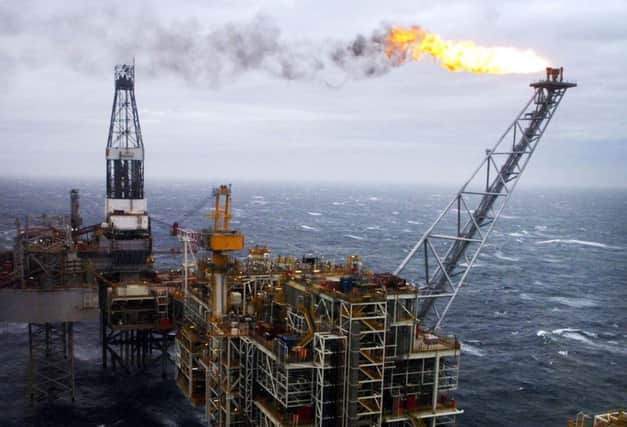How much is North Sea oil worth to the Scottish economy?


As the prospect of a second referendum grows, the oil and gas industry - and its value to the economy north of the border - is once again coming under close scrutiny.
The overall picture in 2017 is very different to the run-up to the first vote almost three years ago.
Advertisement
Hide AdAdvertisement
Hide AdThe sector has been rocked by a collapse in global oil prices, with thousands of job losses as a result.
But experts predict that, even with continued lower prices, there is a future for North Sea production.
From around 2011 until mid-2014, the price of a barrel of oil was largely between $90-$120. But by February 2016, the price had dropped to below $30 - a 75 per cent decline. It has since recovered to around $50.
The independent Fraser of Allander Institute (FAI) tracked the changes in a 2016 report.
“Oil and gas remains a significant component of the total Scottish economy (based on a geographical share of the UK continental shelf), although its contribution has declined sharply in recent years,” the report said.
“Total Scottish GDP in current prices, including a geographical share of North Sea output, fell by 1.2 per cent on a 4Q-on-4Q basis during 2015.”
But, the report’s authors cautioned, tracing the economic impact of developments in oil and gas markets is not straightforward.
“The vast majority of investment in the sector is driven by international energy markets far beyond Scotland,” the report continued. “Furthermore, profits are typically dispersed across multi-national conglomerates and many offshore employees live outside of Scotland.”
Advertisement
Hide AdAdvertisement
Hide AdOfficial statistics show that around 30,000 people in Scotland were employed in “extraction of crude petroleum and natural gas and mining support service activities” in 2014. This excludes the jobs supported by the spending power of the industry, such as hotels, restaurants and taxi firms.
The FAI added that as a result of falling revenues and tax concessions, the UK Office for Budget Responsibility has forecast that North Sea revenues will be in the low hundreds of millions at best over each year of its five-year forecast horizon.
If the sharp fall in North Sea revenues weakens the UK public finances, this will have an impact on Scotland’s block-grant via reduced UK public spending.
Of much greater significance is the potential implications for devolved tax revenues, including income tax.
“Through both direct employment and jobs in the wider supply chain, the North Sea has been a major contributor to earnings and employment growth in Scotland for over four decades, not least from the above average wages and spending power of those who work in the sector,” the FAI report added.
“If earnings and employment continue to fall, this will weaken the outlook for Scottish income tax, VAT revenues and property taxes.”
But there is a future for the North Sea industry thanks to on-going efficiencies in production.
A report published this week by Professor Alex Kemp and Linda Stephen of the University of Aberdeen predicted 11 billion barrels of oil equivalent (boe) could recovered from the UK continental shelf from 2017-2050, using a “lower for longer” price modelling system.
Advertisement
Hide AdAdvertisement
Hide AdIt concluded that would leave an unexploited potential of around 5-7 million boe.
“If productivity can be significantly enhanced the economic recovery from the province can be greatly increased and the supply chain can benefit from a greatly expanded market,” the report said. “But if these productivity improvements are not achieved the prospect is for long term decline at a brisk pace.”